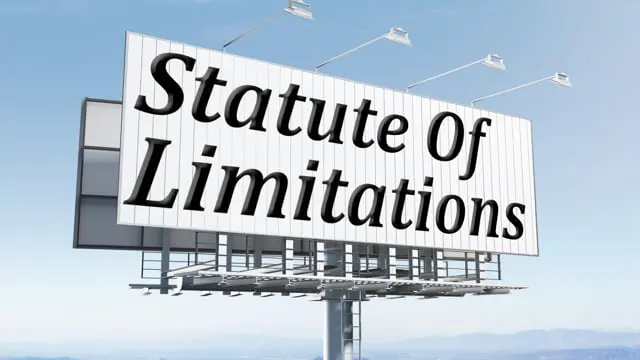En right to an attorney is a fundamental principle of the American legal system, enshrined in the Sixth Amendment of the United States Constitution. This right ensures that individuals facing criminal charges have access to legal counsel, regardless of their ability to afford it. However, the scope and application of this right extend beyond criminal proceedings, encompassing various aspects of the legal system and raising important questions about access to justice in civil matters as well.
The concept of legal representation dates back to the founding of the nation, but its modern interpretation was solidified in the landmark 1963 Supreme Court case Gideon contra Wainwright. This decision established that state courts are required under the Fourteenth Amendment to provide counsel in criminal cases for defendants who are unable to afford their own attorneys. The Court’s ruling recognized that lawyers in criminal courts are necessities, not luxuries, and that the right to counsel is fundamental and essential to a fair trial.
While the right to an attorney in criminal cases is well-established, the situation in civil cases is more complex. The U.S. Constitution does not explicitly grant a right to counsel in civil matters, leading to significant disparities in access to legal representation. This gap in the legal system has far-reaching consequences, particularly for low-income individuals who may face life-altering civil legal issues without the benefit of professional guidance.
The importance of legal representation cannot be overstated. Attorneys play a crucial role in navigating the complexities of the legal system, protecting the rights of their clients, and ensuring fair outcomes. In criminal cases, defense attorneys serve as a safeguard against wrongful convictions and excessive punishments. They investigate the facts of the case, challenge evidence, negotiate plea bargains, and advocate for their clients’ interests throughout the legal process.
In civil matters, while not constitutionally guaranteed, legal representation can be equally vital. Civil cases often involve issues that profoundly affect individuals’ lives, such as housing, family law, and consumer protection. Without adequate representation, litigants may struggle to understand their rights, present their cases effectively, or navigate complex legal procedures. This can lead to unjust outcomes and further exacerbate existing inequalities in the legal system.
En public defender system is the primary mechanism for providing legal representation to indigent defendants in criminal cases. Public defenders are attorneys employed by the government to represent individuals who cannot afford private counsel. While this system aims to fulfill the constitutional mandate of the right to counsel, it faces significant challenges. Many public defender offices are underfunded and overburdened, leading to high caseloads that can compromise the quality of representation.
The issue of indigent defense extends beyond the availability of public defenders. It encompasses questions of adequate funding, reasonable caseloads, and the overall quality of representation provided to low-income defendants. Critics argue that the current system often falls short of providing truly effective assistance of counsel, as guaranteed by the Sixth Amendment. This has led to calls for reform and increased funding to ensure that the right to an attorney is meaningful in practice, not just in theory.
In recent years, there has been growing recognition of the need to expand access to legal representation in civil cases. The concept of a civil right to counsel, sometimes referred to as “Civil Gideon,” has gained traction among legal scholars and advocates. Proponents argue that providing counsel in certain high-stakes civil cases, such as those involving housing evictions or child custody disputes, is essential to ensuring equal justice under the law.
Several states and municipalities have taken steps to implement limited right to counsel programs in specific types of civil cases. For example, New York City has established a right to counsel for low-income tenants facing eviction in housing court. These initiatives recognize that legal representation can be crucial in preventing homelessness and preserving family stability. However, such programs remain the exception rather than the rule, and the vast majority of civil litigants still face the prospect of navigating the legal system without professional assistance.
The debate over expanding the right to counsel in civil cases raises important questions about the allocation of resources and the role of the legal system in addressing societal inequalities. Advocates argue that providing counsel in critical civil matters is not only a matter of fairness but also a cost-effective approach that can prevent more serious legal and social problems down the line. Critics, on the other hand, express concerns about the potential costs and logistical challenges of implementing a broad right to counsel in civil cases.
En American Bar Association (ABA) has been a vocal proponent of expanding access to legal representation. The ABA has adopted resolutions urging federal, state, and territorial governments to provide legal counsel as a matter of right at public expense to low-income persons in adversarial proceedings where basic human needs are at stake. These needs include shelter, sustenance, safety, health, and child custody. The ABA’s advocacy reflects a growing consensus within the legal community that access to counsel is essential for the fair administration of justice.
The issue of legal representation intersects with broader questions of access to justice and the overall fairness of the legal system. Studies have consistently shown that individuals with legal representation fare better in court proceedings than those who represent themselves. This disparity raises concerns about the fundamental fairness of a system where the outcome of a case may depend as much on a litigant’s ability to afford an attorney as on the merits of their case.
Pro bono legal services play an important role in bridging the gap in access to representation. Many attorneys and law firms provide free legal assistance to low-income individuals and non-profit organizations as part of their professional responsibility. While pro bono work is commendable and makes a significant difference in individual cases, it is not a comprehensive solution to the systemic lack of access to legal representation.
Legal aid organizations also serve a crucial function in providing representation to those who cannot afford private attorneys. These organizations, often funded through a combination of government grants and private donations, offer free or low-cost legal services in a variety of civil matters. However, legal aid programs are chronically underfunded and unable to meet the full demand for their services, leaving many eligible individuals without assistance.
The advent of technology has opened up new possibilities for expanding access to legal information and assistance. Online legal resources y virtual legal clinics have made it easier for individuals to access basic legal information and guidance. While these tools can be valuable, they are not a substitute for personalized legal representation, particularly in complex cases or those with high stakes.
En COVID-19 pandemic has further highlighted the importance of legal representation and exacerbated existing inequalities in access to justice. The economic fallout from the pandemic has led to increased legal needs in areas such as housing, employment, and consumer debt, while simultaneously straining the resources of legal aid organizations and pro bono programs. This has renewed calls for innovative approaches to providing legal assistance and representation to those in need.
One area where the right to counsel has seen significant development is in immigration proceedings. While immigration cases are technically civil matters, the consequences of deportation can be as severe as many criminal penalties. In recent years, there has been a growing movement to provide legal representation to immigrants facing deportation, particularly those in detention. Some jurisdictions have implemented programs to provide counsel to immigrants, recognizing the complexity of immigration law and the high stakes involved in these cases.
The issue of legal representation also intersects with questions of racial justice and equity in the legal system. Studies have shown that racial minorities are disproportionately affected by the lack of access to legal representation, both in criminal and civil matters. This disparity contributes to broader patterns of systemic inequality and underscores the importance of ensuring equal access to justice for all members of society.
En quality of legal representation is as important as its availability. The mere presence of an attorney does not guarantee effective assistance of counsel. In criminal cases, courts have established standards for determining whether a defendant received ineffective assistance of counsel, potentially grounds for appeal. However, these standards are high, and proving ineffective assistance can be challenging. In civil cases, where there is no constitutional right to counsel, the issue of quality representation is even more complex.
Formación jurídica plays a crucial role in shaping the future of legal representation. Law schools are increasingly incorporating clinical programs and pro bono requirements into their curricula, aiming to instill a commitment to public service and access to justice among future attorneys. These initiatives help prepare law students to address the unmet legal needs in their communities and contribute to closing the justice gap.
En obligaciones éticas of attorneys also come into play when considering the right to legal representation. The ABA Model Rules of Professional Conduct emphasize the professional responsibility of lawyers to provide legal services to those unable to pay. This ethical framework underscores the idea that access to justice is not just a matter of individual rights but a collective responsibility of the legal profession.
Alternative dispute resolution (ADR) methods, such as mediation and arbitration, have gained popularity as ways to resolve legal disputes outside of traditional court proceedings. While these methods can be effective in many cases, they also raise questions about access to representation. Ensuring that parties in ADR processes have access to legal advice and representation is crucial to maintaining fairness and protecting the rights of all involved.
En globalization of legal practice has introduced new dimensions to the issue of legal representation. As legal matters increasingly cross international borders, questions arise about the right to counsel in transnational disputes and the role of attorneys in navigating complex international legal frameworks. This global context adds another layer of complexity to the already challenging issue of ensuring access to effective legal representation.
Legal technology continues to evolve, offering potential solutions to some aspects of the access to justice problem. Artificial intelligence and machine learning applications are being developed to assist with legal research, document preparation, and even basic legal advice. While these technologies show promise in making legal information more accessible, they also raise ethical and practical questions about the role of human attorneys and the limits of automated legal assistance.
En economic impact of providing legal representation in civil cases is a subject of ongoing debate and research. Proponents argue that investing in civil legal aid can result in significant cost savings for society by preventing more serious legal and social problems. For example, providing representation in housing cases can prevent homelessness, which in turn reduces costs associated with emergency shelter, healthcare, and social services. However, quantifying these benefits and balancing them against the costs of providing representation remains a challenge.
En role of the judiciary in addressing the issue of legal representation is evolving. Some judges have taken proactive steps to ensure fairness in their courtrooms when dealing with unrepresented litigants. This can include providing clear explanations of legal procedures, ensuring that pro se litigants understand their rights, and in some cases, appointing counsel in particularly complex or high-stakes civil matters. However, the extent to which judges can or should intervene in these situations remains a subject of debate within the legal community.
Legal empowerment initiatives aim to go beyond providing representation by educating individuals about their legal rights and how to navigate the legal system. These programs seek to build the capacity of communities to address their own legal needs, complementing traditional legal aid services. While empowerment strategies can be effective, they also highlight the complexity of legal issues and the ongoing need for professional representation in many cases.
En intersection of mental health and legal representation is an area of growing concern. Individuals with mental health issues may face particular challenges in accessing and effectively utilizing legal representation. This has led to calls for specialized training for attorneys working with clients with mental health needs and for greater collaboration between the legal and mental health professions to ensure that these individuals receive appropriate support and representation.
Juvenile justice is another area where the right to legal representation has significant implications. The Supreme Court has recognized that juveniles have a right to counsel in delinquency proceedings, but the implementation of this right varies widely across jurisdictions. Ensuring effective representation for young people in the sistema judicial is crucial for protecting their rights and promoting rehabilitation rather than punishment.
En digital divide presents another challenge to equitable access to legal representation. As legal services increasingly move online, individuals without reliable internet access or digital literacy skills may face additional barriers to obtaining legal assistance. Addressing this digital divide is crucial for ensuring that technological advancements in the legal field do not exacerbate existing inequalities in access to justice.
In conclusion, the right to an attorney is a cornerstone of the American legal system, essential for ensuring fair and just outcomes in both criminal and civil proceedings. While significant progress has been made in recognizing and implementing this right, particularly in criminal cases, substantial challenges remain. The lack of a guaranteed right to counsel in civil cases, combined with underfunding of public defender and legal aid systems, leaves many individuals without adequate legal representation in matters that can profoundly affect their lives.
Addressing these challenges requires a multifaceted approach, including increased funding for legal aid and public defender programs, expansion of the right to counsel in critical civil matters, and innovative approaches to providing legal assistance. It also calls for a broader societal commitment to the principle of equal justice under law and recognition of the vital role that legal representation plays in upholding this principle.
As the legal landscape continues to evolve, with new technologies and global challenges shaping the practice of law, the fundamental importance of legal representation remains constant. Ensuring that all individuals have access to effective legal counsel, regardless of their economic status, is not just a matter of constitutional rights or professional ethics—it is essential for maintaining the integrity of the legal system and the fabric of a just society.
Website citations:
- https://www.aclu-mo.org/en/news/why-right-counsel-important
- https://www.apu.apus.edu/area-of-study/security-and-global-studies/resources/access-to-justice-requires-changes-from-the-legal-system/
- https://www.amacad.org/publication/daedalus/right-civil-counsel
- https://hrlr.law.columbia.edu/hrlr/mandating-justice-naranjo-v-thompson-as-a-solution-for-unequal-access-to-representation/








